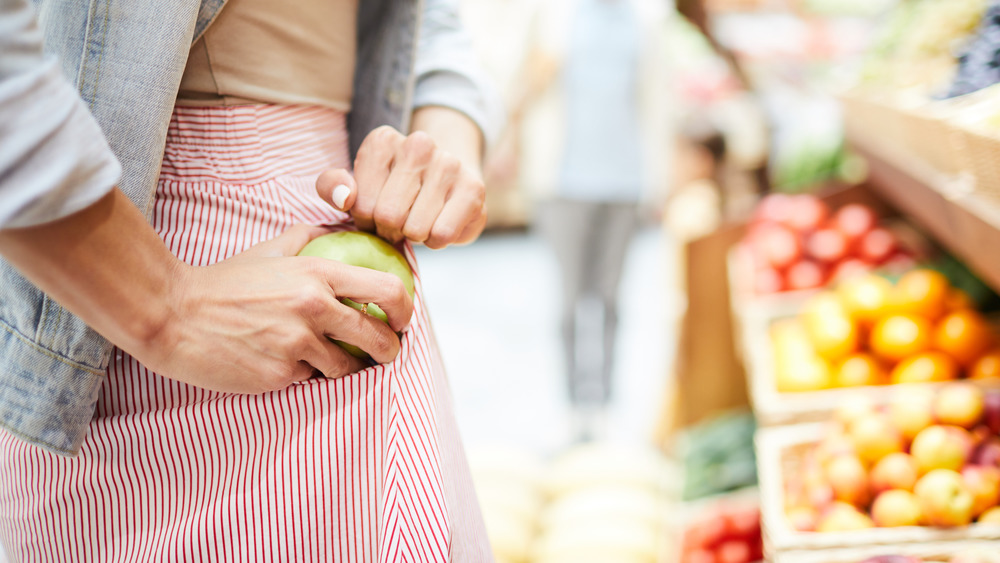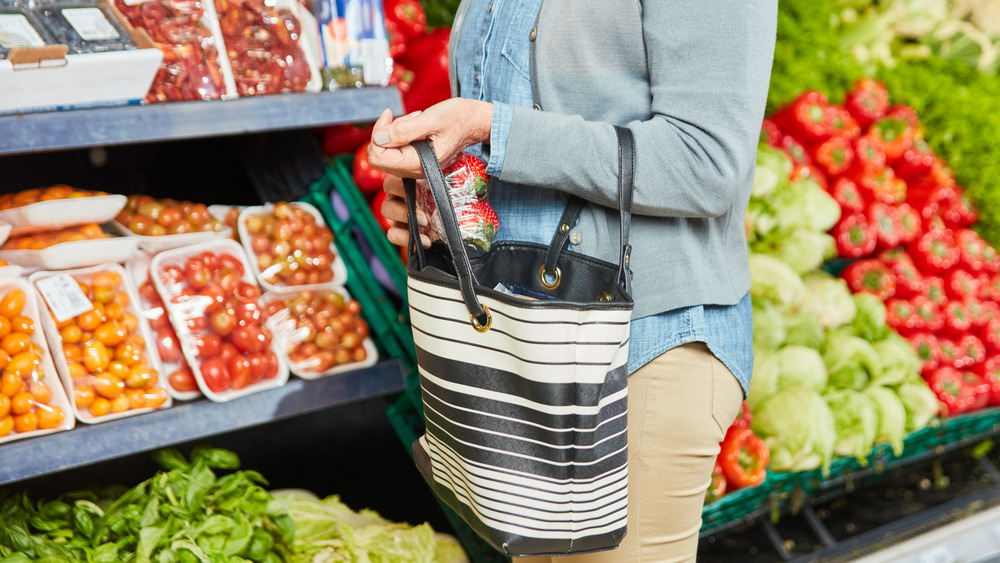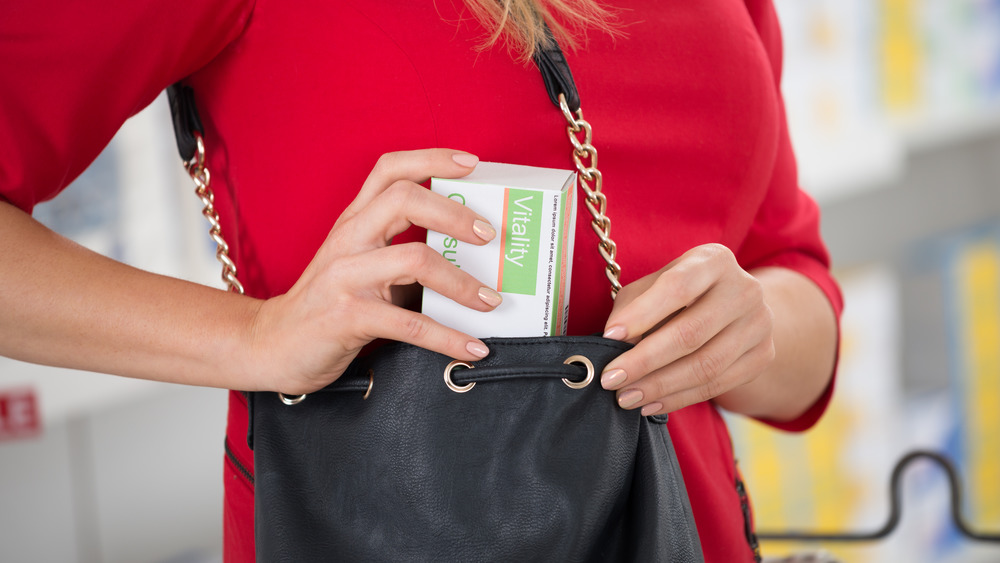The Devastating Reason Food Shoplifting Is On The Rise
2020 has given us plenty of things to think about. A pandemic that, from all accounts, could have been easy to control had it been reigned in from the start. A drawn-out, electoral exercise, which shouldn't have had to be controversial. Now it is asking us to think about the impact of lost jobs and late stimulus checks: a 45 percent spike in the number of Americans struggling with hunger, and as a result, a staggering increase in shoplifting.
The Washington Post reports that more than 20 million Americans are now on unemployment assistance, and nearly 12 million will lose their benefits if congress doesn't pass new relief measures, making the conditions ripe for the theft of staples ranging from bread to pasta to baby formula. It also says the clock is ticking for federal food programs, which have been giving billion of dollars worth of produce, dairy, and meat to food banks. Their funds will also run out at the end of the year.
Jeff Zisner, CEO of Aegis, a workplace security firm, told The Washington Post, "We're seeing an increase in low-impact crimes. It's not a whole lot of people going in, grabbing TVs and running out the front door. It's a very different kind of crime — it's people stealing consumables and items associated with children and babies."
Figuring out how to handle shoplifting for necessary items is incredibly difficult
University of Florida's Read Hayes has been looking at theft data since the pandemic broke out and says it's still too early to say how bad the shopping scenario will turn out to be. "We believe there is some increase in people who, because of COVID-19, are not able to pay for the items," Hayes tells The Washington Post. "It's sort of maintained that there may be a slight uptick in need-based stuff, but it's really difficult to tease that out."
But there is plenty of anecdotal evidence to show shoplifting is on the rise, leaving law enforcement officers and shopkeepers to deal with the incidents in a way they see fit. "It's become much harder during the pandemic," the owner of a family-owned downtown Washington DC supermarket says. "People will say, 'I was just hungry.' And then what do you do?"
According to the Census Bureau, 1 in 8 Americans don't have enough to eat
Seattle's Q13 Fox News may have provided one possible answer. It reported on a police officer who was called in to handle a shoplifting incident involving a homeless woman stealing warm clothes and food for her children from a local Walmart. Instead of writing them up or arresting them, he paid for their items instead. "Being human and paying it forward to the best of your ability. If you're in a position to help and you see somebody that needs help, we need to break the stigma of not accepting handouts or helping people. Helping people is what we should do. It's humanity to its core," the officer, former veteran Nicholas King says.
Compassion may be what is needed at this time, particularly since the Census Bureau reports that 1 in 8 Americans — or about 26 million adults — say they didn't have enough food to eat. Danielle Nierenberg, president of nonprofit organization Food Tank tells The Washington Post: "We're supposed to be the greatest, richest country in the world, and we don't have safety nets for when something like this happens. People are being forced to steal when they shouldn't have to, and that's a great American tragedy."


